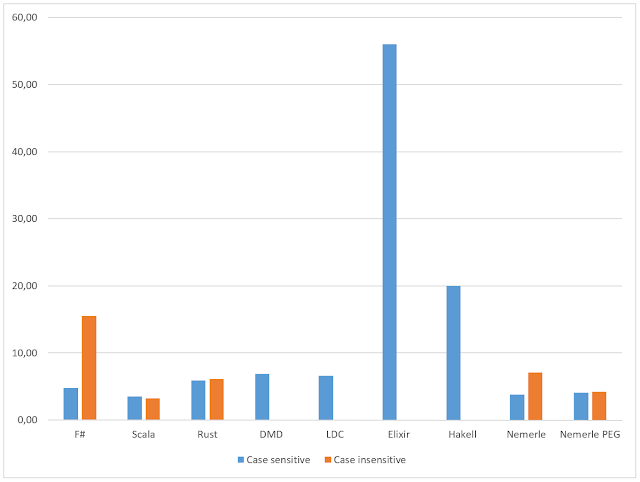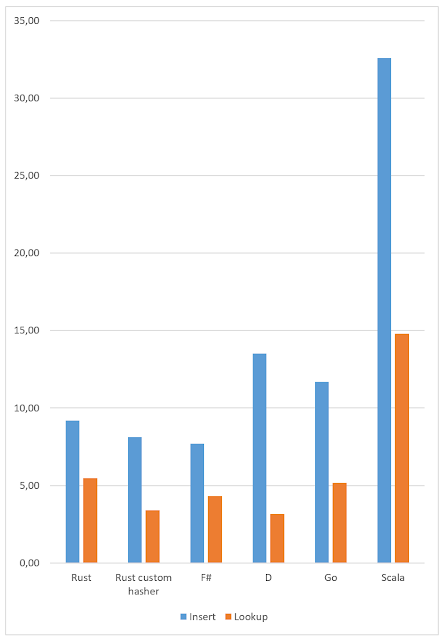Go: fib
Go code is relatively low-level since it does not have "foreach over range" syntax construct:
Results are not as impressive for a systems language: 2.38 seconds. And it lays below Rust but under Haskell:
Results are not as impressive for a systems language: 2.38 seconds. And it lays below Rust but under Haskell:
- C# - 1.26
- D (DMD) - 1.3
- F# - 1.38
- Nemerle - 1.45
- Rust - 1.66
- Go - 2.38
- Haskell - 2.8
- Clojure - 9
- Erlang - 17
- Ruby - 60
- Python - 120



Comments
#include
#include
int fib(int n){
if (n < 2)
return n;
return fib(n - 1) + fib(n - 2);
}
int main()
{
clock_t begin = clock();
for (int n = 0; n < 40; n++) {
printf("fib (%d) = %d\n", n, fib(n));
}
clock_t end = clock();
double elapsed_secs = double(end - begin) / CLOCKS_PER_SEC;
printf("elapsed: %f secs\n", elapsed_secs);
return 0;
}